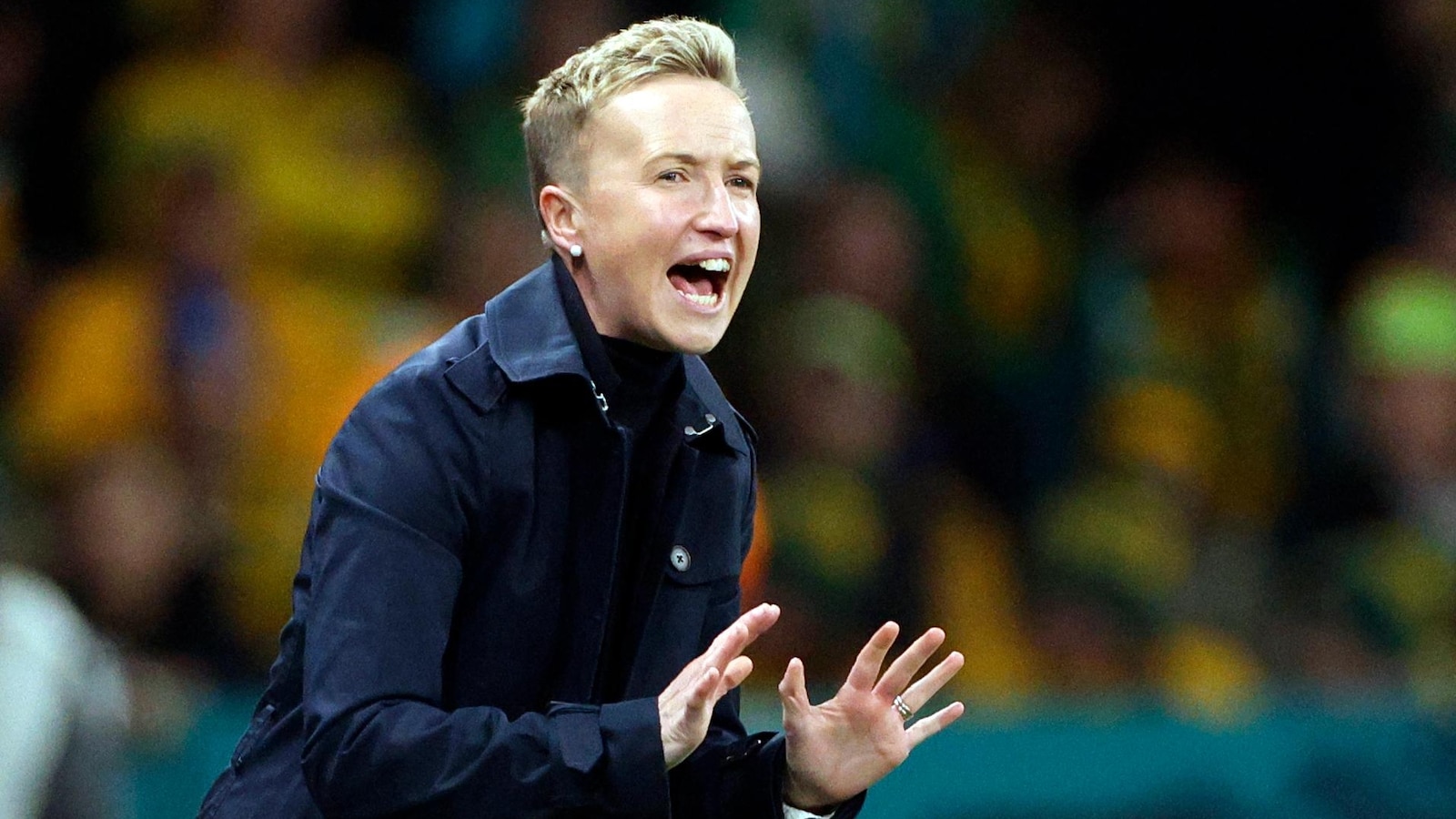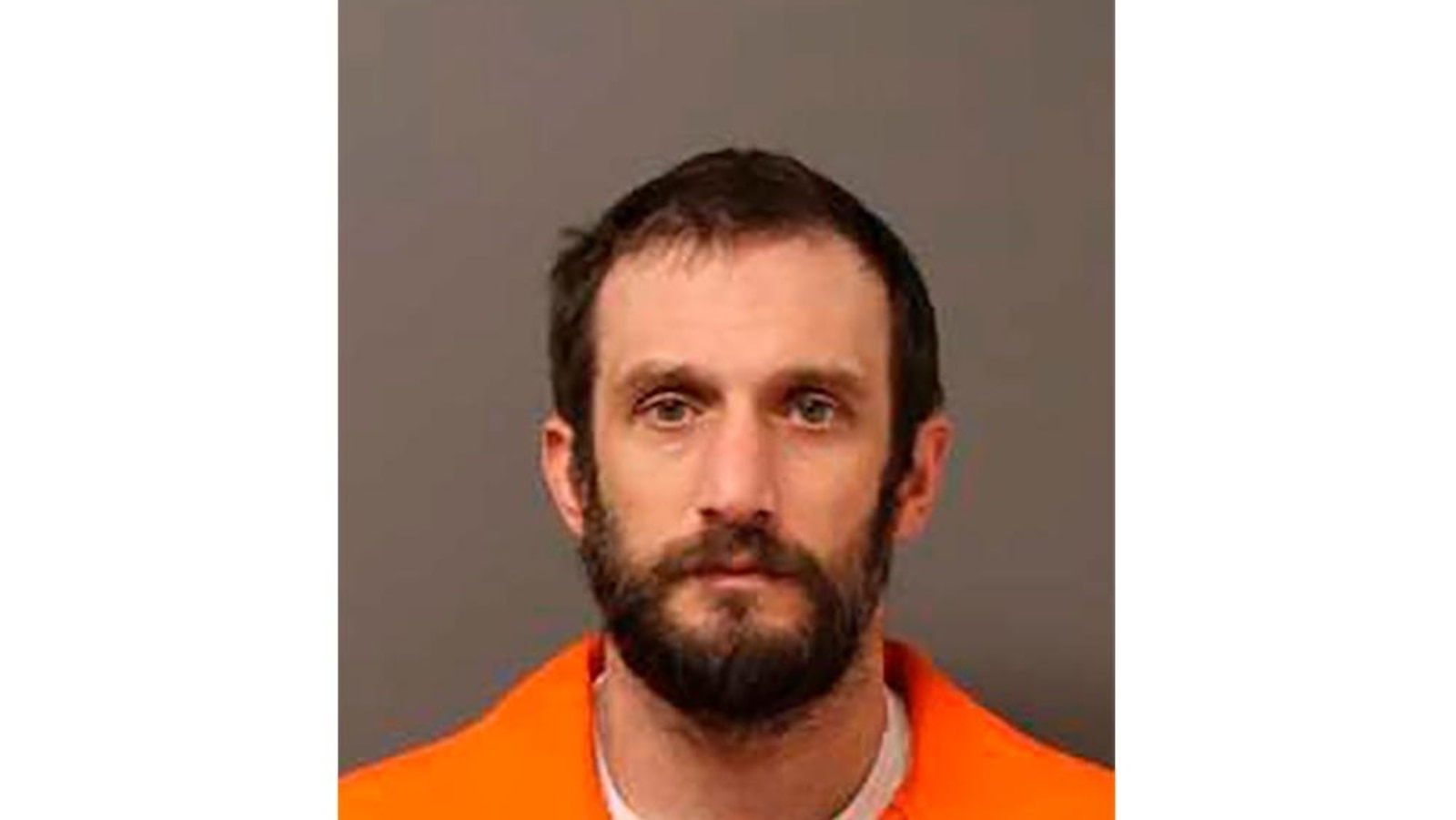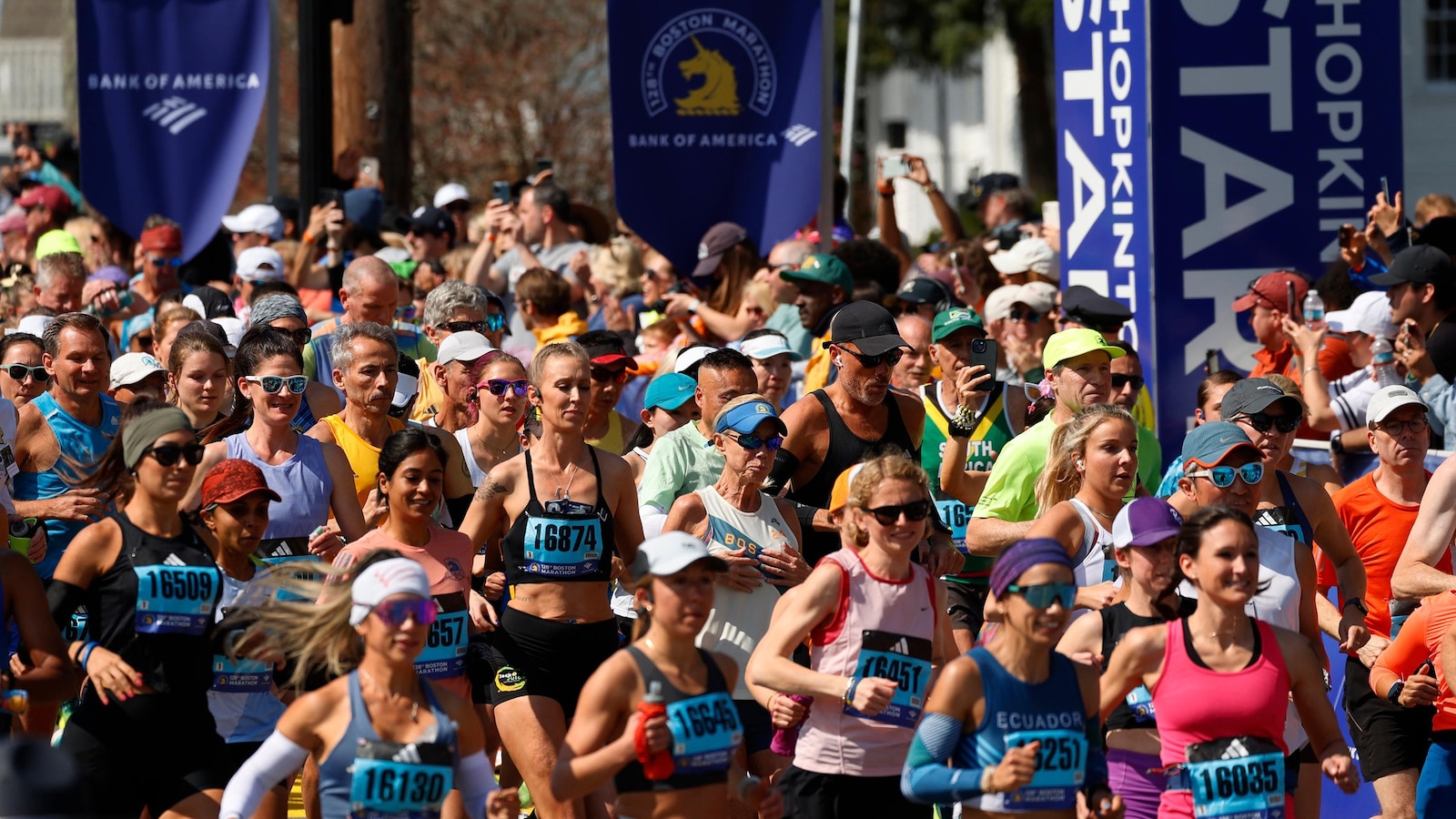
MARSEILLE, France — A complaint against the Canadian women’s national team for filming an opponent’s training session was made at the 2022 CONCACAF W Championship, which served as a qualification tournament for last summer’s Women’s World Cup.
The revelation is part of the fallout of an alleged drone spying scandal at the Olympics that has rocked Canada, the defending champions.
FIFA banned coach Bev Priestman — who had already been sent home from France — for a year and imposed a hefty $226,000 fine on Canada Soccer. Soccer’s world governing body also docked Canada six points in the Olympics women’s soccer tournament.
Canada was looking into an appeal, but the incident has raised questions about the practices of its men’s and women’s soccer teams and how widespread the issue could be. Canadian officials said they suspected a “systemic ethical shortcoming.”
Canada Soccer CEO and general secretary Kevin Blue said this week he learned of a possible drone incident involving the men’s national team at the recent Copa America.
He said it was his understanding that it did not have an impact on the competitive integrity of the tournament but would not offer details.
Asked whether men’s coach Jesse Marsch was aware of possible drone usage at that tournament that ended this month in the United States, Blue said Marsch was aware after the fact and has “denounced it as a practice to his staff.” Canada reached the Copa semifinals, falling 2-0 to Argentina.
A CONCACAF official confirmed a complaint at the 2022 W Championship but offered little details. The United States defeated Canada in the tournament final in Mexico, with both countries earning a berth in the Women’s World Cup and Olympics.
The Sports Network in Canada reported other incidents of surveillance, including at the Tokyo Games, citing unnamed sources with knowledge of the filming.
FIFA declined comment when asked by the AP if the matter would lead to a wider investigation into drone spying in soccer.
The case is an embarrassment for the Canadian federation, which is teaming with the United States and Mexico to host the 2026 Men’s World Cup across North America.
Two Canadian cities, Toronto and Vancouver, will stage some of the 104 games at a tournament expanding to 48 teams instead of 32. Games also will be played in 11 cities in the United States and three in Mexico.
Meanwhile, Canada’s sanctions are likely heading for the Court of Arbitration for Sport’s special Olympic court in Paris.
Canada Soccer and the Canadian Olympic Committee said late Saturday that they planned to appeal the points deduction, which make it difficult, but not impossible for Canada’s women to advance to the knockout round.
“We feel terrible for the athletes on the Canadian women’s Olympic soccer team who as far as we understand played no role in this matter,” David Shoemaker, the Olympic committee’s CEO and secretary general, said in a statement. “In support of the athletes, together with Canada Soccer, we are exploring rights of appeal related to the six-point deduction at this Olympic tournament.”
Canada was set to play host France on Sunday night in Saint-Etienne. Interim coach Andy Spence is leading the team, along with assistant Neil Wood and goalkeepers coach Jen Herst.
“There’s no training for this,” Spence said at practice on Saturday. “I’ve been asked to lead and that’s what I’m going to do to my very best capabilities.”
The Canadians won their opener 2-1 over New Zealand and have three points.
It is possible with a win against France and another against Colombia in the final group match Wednesday that the Canadian team could advance to the knockout round even with the deduction, but a lot of other results would have to fall Canada’s way.
Former national team player Diana Matheson said she was still processing the allegations.
“What I’m 100 percent clear on though, is that I 100 percent stand with the players,” she said on social media. “The players that represent Canada, present and past, know exactly what it means to represent Canada. What it means to be a Canadian athlete. I’m with you, Canadians are with you. Last game, next game, all the games, we are right there with you. Take 6 points away from us? Fine, let’s go get 9.”
The scandal erupted in the days leading up to the Olympic tournament when New Zealand complained about drones flying over practice. Two team staff members, assistant coach Jasmine Mander and analyst Joseph Lombardi, were sent home.
Priestman initially removed herself from the opener but was later suspended for the tournament. FIFA opened a disciplinary inquiry and Canada Soccer said it was opening an independent review.
___
AP Summer Olympics: https://apnews.com/hub/2024-paris-olympic-games
In recent years, allegations of drone use in Canada have been on the rise, sparking controversy and concern among citizens and government officials alike. The use of drones, also known as unmanned aerial vehicles (UAVs), has become increasingly popular for a variety of purposes, including surveillance, photography, and even package delivery. However, the misuse of drones has raised serious ethical and legal questions, leading to a growing scandal surrounding their use in Canada.
One of the main concerns surrounding drone use in Canada is the issue of privacy. Drones equipped with cameras have the ability to capture images and videos from high altitudes, potentially infringing on individuals’ right to privacy. There have been reports of drones being used to spy on people in their homes or record sensitive information without consent, leading to calls for stricter regulations on their use.
Another major issue with drone use in Canada is the potential for misuse by criminal organizations or individuals. Drones can be used for illegal activities such as drug trafficking, smuggling, or even terrorist attacks. The ability of drones to fly undetected and access hard-to-reach areas makes them an attractive tool for those looking to engage in illicit activities.
Furthermore, there are concerns about the safety implications of drone use in Canada. Drones have the potential to collide with manned aircraft, endangering the lives of passengers and crew. There have been several near-misses reported between drones and commercial airplanes, highlighting the need for better enforcement of regulations and stricter penalties for those who violate airspace restrictions.
In response to these growing concerns, the Canadian government has taken steps to address the issue of drone use in the country. Transport Canada has implemented regulations requiring drone operators to register their devices and obtain a special flight operations certificate for certain types of drones. Additionally, there are strict rules in place regarding where drones can be flown, including restrictions on flying near airports, military bases, or other sensitive areas.
Despite these efforts, allegations of drone use in Canada continue to surface, indicating that more needs to be done to regulate and monitor the use of drones in the country. The scandal surrounding drone use serves as a reminder of the potential risks and consequences associated with this technology, and the importance of striking a balance between innovation and accountability in its use. As the debate over drone use in Canada continues to unfold, it is crucial for policymakers, law enforcement agencies, and the public to work together to ensure that drones are used responsibly and ethically in order to protect the safety and privacy of all Canadians.


